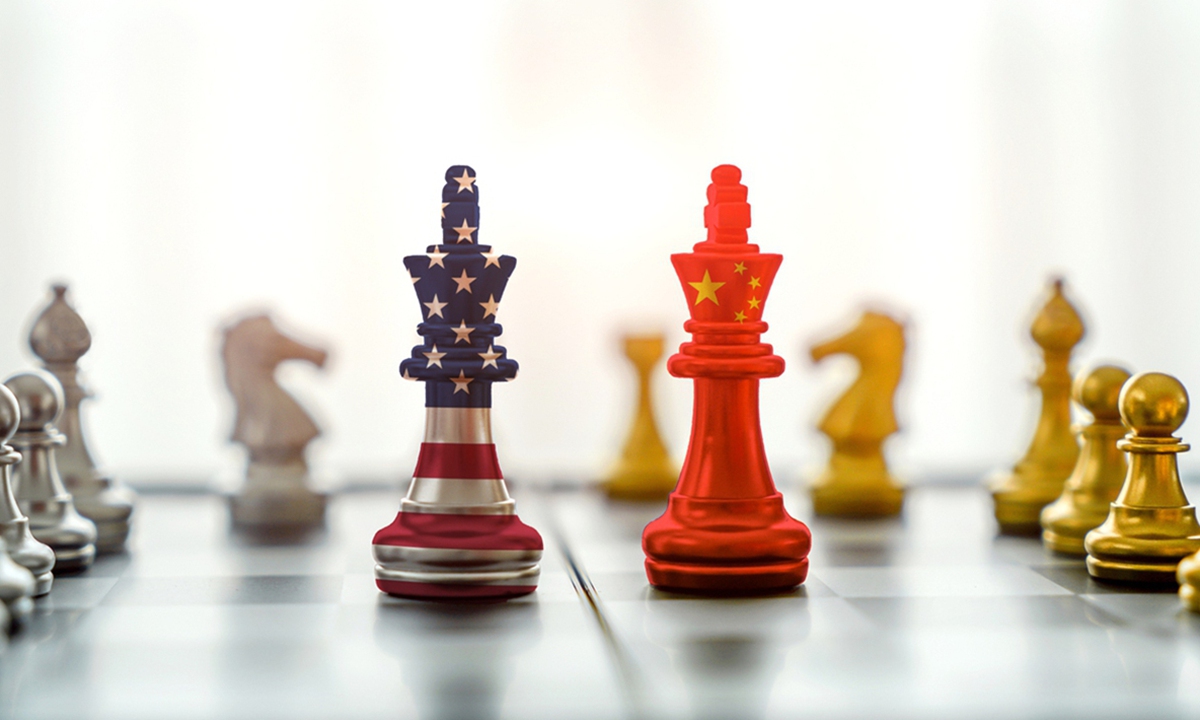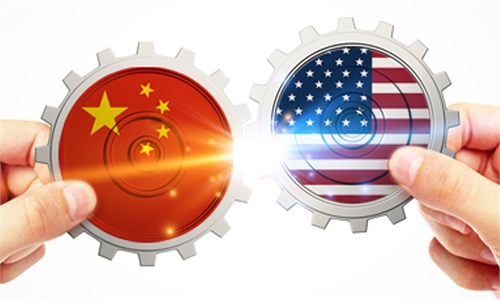Blinken visit still 'opportunity' amid mutual low expectations
US realizes urgency of risk management, but its sincerity unclear: expert

China US
High-level US officials played down expectations of breakthrough from US Secretary of State Antony Blinken's upcoming visit to China. Although Chinese experts also have low expectations, they said the visit, propelled by the US' urgent need to engage with China as it finds itself mired a slew of domestic and international woes, may serve as "window of opportunity" to save bilateral ties from deteriorating to "worse than the worst."
Relaunch of the next stage high-level meeting, the Taiwan question, economic cooperation and the Russia-Ukraine conflicts are expected to top the list of topics during Blinken's visit, experts predicted. For this visit to generate practical results, the onus is on Washington to show more sincerity and respect, as it is the US that is more eager to communicate with China, rather than the other way round, said the experts.
On the same day that Blinken's China visit was announced, Daniel Kritenbrink, the State Department's top diplomat for East Asia, told reporters in a briefing call on Wednesday, "We're not going to Beijing with the intent of having some sort of breakthrough or transformation in the way that we deal with one another."
White House Indo-Pacific Coordinator Kurt Campbell said in the same call that Washington has an interest in setting up crisis communication mechanisms to reduce conflict risk.
Blinken is the highest-ranking US government official to visit China since President Joe Biden took office in January 2021, and his visit also comes at a time when bilateral ties have spiraled down to a new low.
"The lack of expectations of a breakthrough from Blinken's trip is mutual," Lü Xiang, research fellow at the Chinese Academy of Social Sciences, told the Global Times. However, he described Kritenbrink and Campbell's remarks as "restrained."
"Although it is still unclear if the US is being sincere in improving ties, it's clear from their remarks that the US has realized the danger facing bilateral ties and the urgency of risk management," said Lü.
Wang Wenbin, spokesperson of China's Ministry of Foreign Affairs, did not brief on the details of Blinken's visit from Sunday to Monday, saying that both sides are discussing arrangements and will publish details soon.
Relaunch of the next stage high-level meeting, the Taiwan question, economic cooperation and the Russia-Ukraine conflict are expected to top the list of topics during Blinken's visit, said Jin Canrong, associate dean of the School of International Studies at the Renmin University of China.
Shortly before Blinken's visit was confirmed by China, Chinese State Councilor and Foreign Minister Qin Gang had a phone call with Blinken at the latter's request. During the phone call, Qin expounded on China's firm stance on core concerns such as the Taiwan question.
The reason why the US is eager to engage with China and for Blinken to make a trip to the country partly is because Washington is mired in a quagmire of both domestic and international issues, such as its debt ceiling problem, the ongoing Russia-Ukraine conflict, and other urgent issues, Li Haidong, a professor at the China Foreign Affairs University, told the Global Times. Communications with China are key to solving those problems, he noted.
Lü opined that the US' eagerness to strengthen crisis communications with China also came after its efforts to align countries to counter China ended in vain. Apart from one or two countries, most are unwilling to tie themselves to the US chariot, and most countries have publicly expressed concerns over deteriorating China-US ties.
Southeast Asian leaders warned against the economic cost of the growing US-China rivalry during the Boao Forum for Asia in Hainan this March. In April, French President Emmanuel Macron also urged Europe to reduce its dependency on the US and avoid getting dragged into a confrontation between China and the US over the Taiwan question.
Despite low expectations, Lü still believes it is not too late for both countries to use this visit as a "window of opportunity" to prevent bilateral ties sliding from "worse to worst." He believed that a deeper consensus between the world's two biggest economies could not only prevent bilateral ties from hitting rock bottom, but also alleviate the spillover from the China-US competition to other countries.
Acting as a catalyst
As Blinken is about to embark on his journey to China, there are more signs of US companies seeking interactions with Chinese market, with a number of executives from US multinationals visiting China recently. Bill Gates, Microsoft Corp's co-founder, is set to meet the Chinese president on Friday during his visit to China, Reuters reported. This follows a recent visit made by US billionaire Elon Musk to China.
US Treasury Secretary Janet Yellen also said recently that the US' decoupling with China would be a big mistake, and that it is in the US' best interests to maintain ties with China, according to a report by CNN.
In response, Shu Jueting, spokesperson for China's Ministry of Commerce, said on Thursday that China and the US should uphold principles of mutual trust, peaceful co-existence, and win-win cooperation to push for the healthy and stable development of bilateral economic ties, and also inject more stability and positive energy into the world's economy.
Experts the Global Times talked to said they hoped Blinken's visit can act as a "catalyst" to encourage forces in the US that oppose China-US decoupling, and they expect the trade sector to be the first ice-breaking area during this visit. They said that under pressure from the US business community and some pro-business officials, one of Blinken's goals for this visit is to ensure that economic cooperation between the two countries remains at normal level, and to maximize the benefits of this cooperation for the Biden administration.
Li Changan, a professor at the Academy of China Open Economy Studies of the University of International Business and Economics, told the Global Times on Thursday that Blinken's visit to China is a good opportunity for the two countries to "break the deadlock" in the economic field, and make their requests known to each other.
Li said that as China has risen to become an integral part of the global economic system, it's impossible for the US to completely bypass China's supply chains and form a new one.
"Because of China's irreplaceable position in global supply chains, the US has to cooperate with China in many industries. Take the chip industry for example, China is not only a chip manufacturing powerhouse, but a big consumer market of chip products. If the US completely decouples from the Chinese market in the chip industry, that would bring tremendous losses to global chip producers, including US companies," Li said.
"Getting in touch with each other is a sign of positive communication and is a good thing for both sides, but we should watch the US' actions to see if the two sides can really reach some consensus," Li said, adding that the US' China strategy is quite "twisted" nowadays, as it wants to curb China's rise, but at the same time does not want to completely drift apart from the country.




